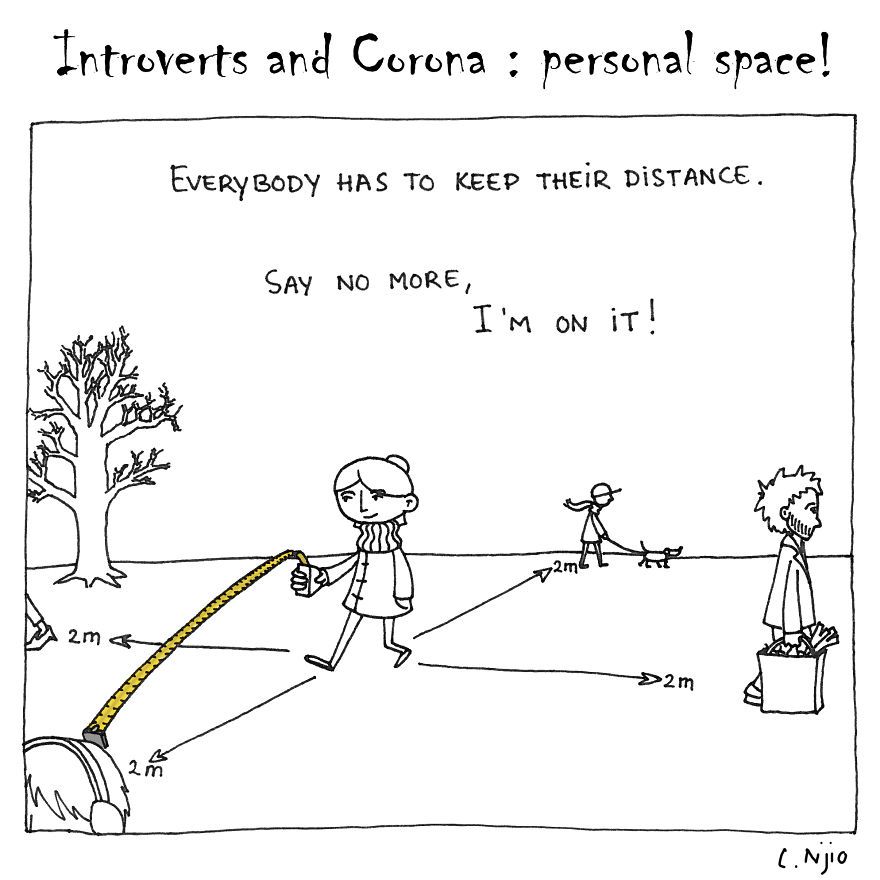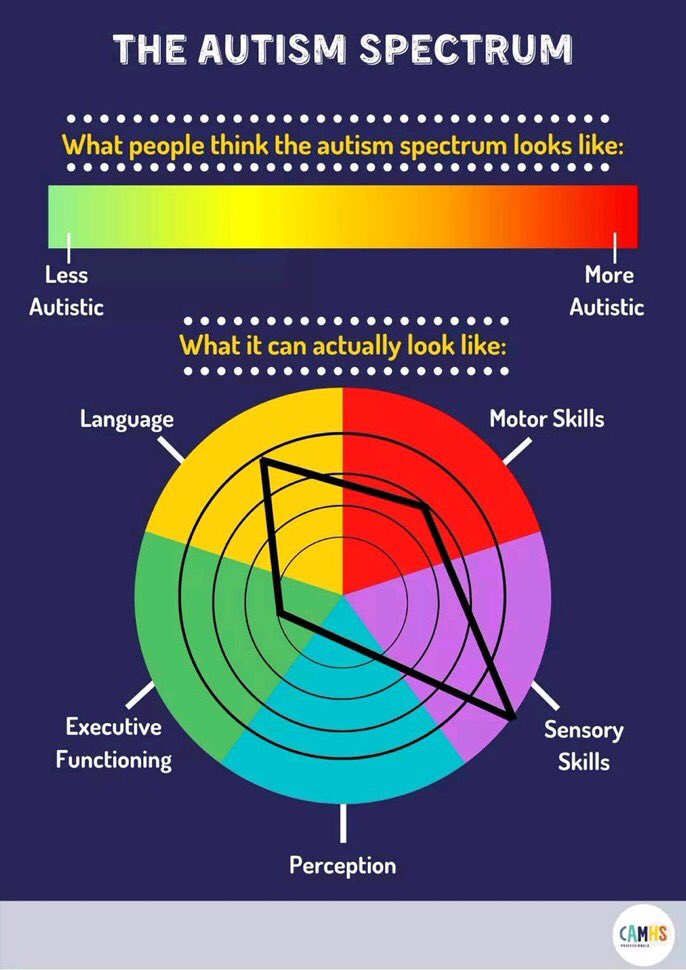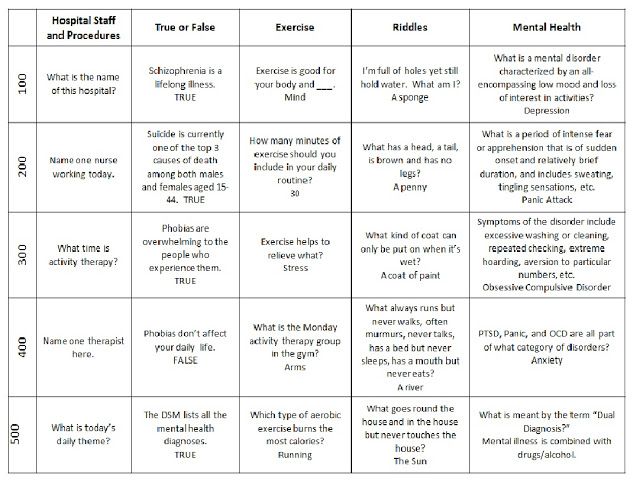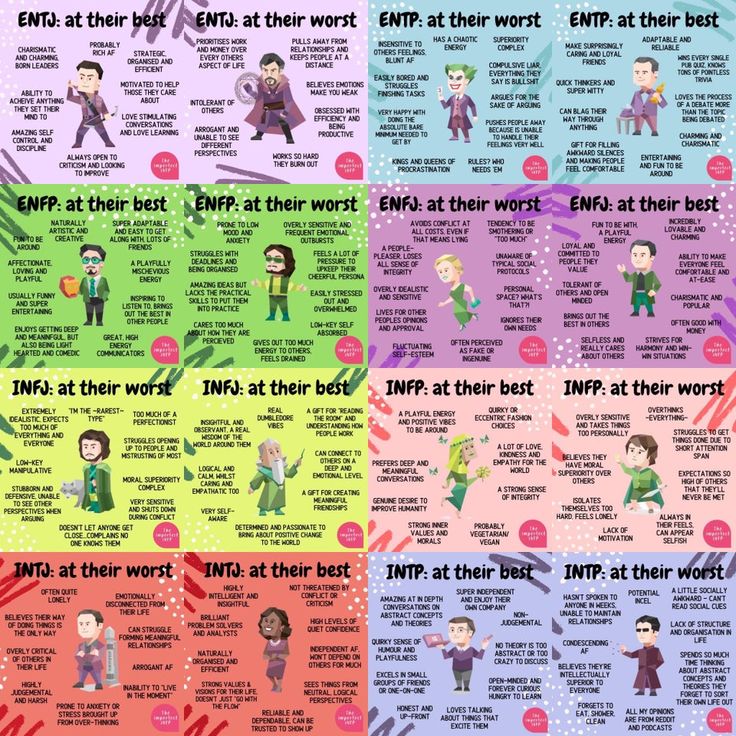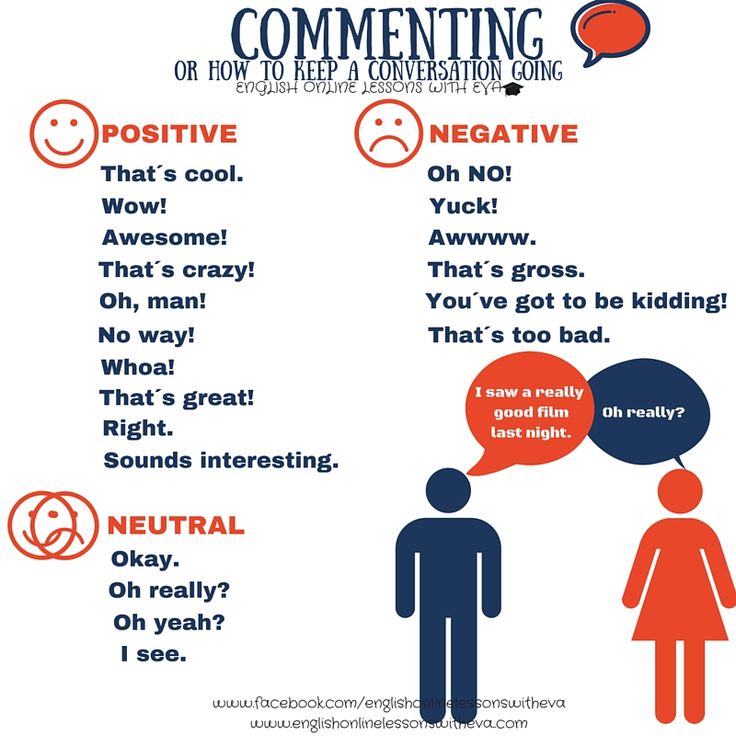Introvert and other personalities
Myers-Briggs: 8 Introverted Personality Types
“It is easy in the world to live after the world’s opinions; it is easy in solitude to live after your own; but the great man is he who in the midst of the crowd keeps with perfect sweetness the independence of solitude.” – Ralph Waldo Emerson
The Myers-Briggs Type Indicator (MBTI) organizes personality into 16 distinct types, based on Carl Jung‘s theory of psychological type. We all exhibit different “preferences” for ways of being and interacting with others in the world. The idea behind personality type is that characteristics that appear uninterpretable or even odd, make sense when we consider these behaviors through the lens of personality.
People are not usually “always” one way or the other. We can act different ways in different situations and around different people. This is highly adaptive and enables us to alter our behaviors to fit different social contexts. For example, someone who might identify as being highly introverted might be able to utilize extraverted tendencies
adaptively when he or she needs to engage in an important public speaking event.
The Myers-Briggs concept of introversion (vs. extroversion) involves a tendency to derive energy from time spent alone; time spent around other people may be experienced as emotionally or psychologically draining. These individuals tend to be sensitive to their environments and may even report being easily “over-stimulated” by the amount of sounds, smells, colors, and interactions taking place around them. A newer concept called the Highly Sensitive Person (HSP) goes into greater detail with this aspect of introversion (not all introverts have this experience).
Introverted individuals generally prefer to take time on their own to contemplate or reflect upon ideas before taking decisive action. They are also usually more comfortable after a decision has been made. It is not uncommon for introverted people to experience liking the “idea” of something better than the “real thing.”
ISTJIntroverted / Sensing / Thinking / Judging – (16.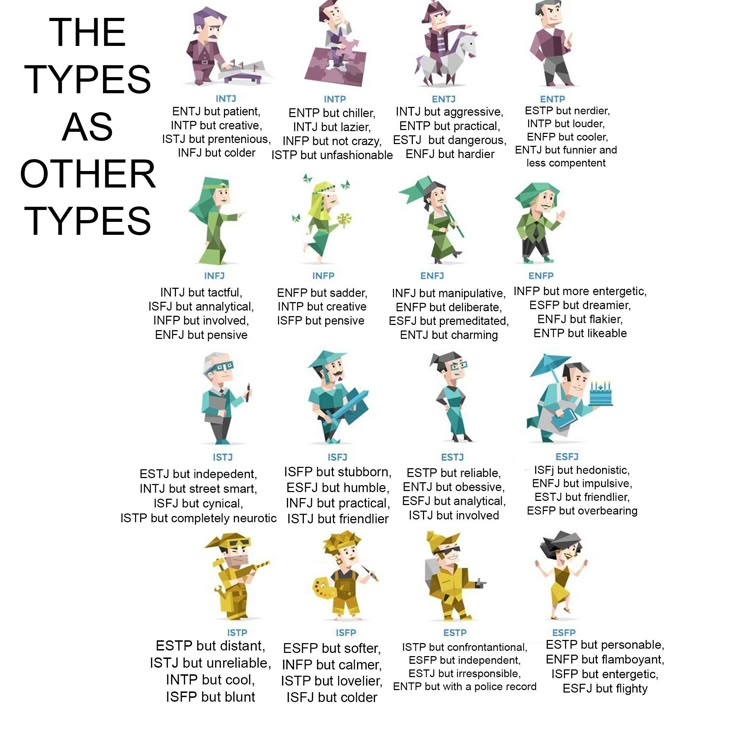 4% of males, 6.9% of females)
4% of males, 6.9% of females)
ISTJ’s are quiet and serious, generally interested in a peaceful and secure way of life. They are known for their responsible, dependable, and thorough natures. They are logical, practical, and work steadily towards goals without much distractibility. They are often interested in supporting traditions and establishments. ISTJ’s usually take great enjoyment out of order and organization in both their home and work lives.
ISFJIntroverted / Sensing / Feeling / Judging – (8.1% of males, 19.4% of females)
ISFJ’s are quiet, conscientious, and kind. They are responsible in nature and are committed to meeting their obligations. They have a tendency to put the needs of others above their own. Stable and practical in nature, they value security and traditions. ISFJ’s tend to have a rich inner world and are highly attuned to the feelings of others. They usually are very interested in ways of serving others.
INFJIntroverted / Intuitive / Feeling / Judging – (1.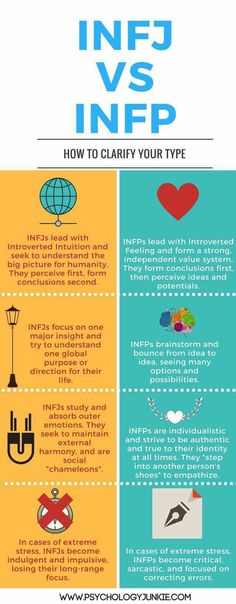 3% of males, 1.6% of females)
3% of males, 1.6% of females)
INFJ’s are quietly forceful, sensitive, and original. They seek out meaning in the connections between people, ideas, and possessions. They are curious to understand the motives of others and generally have great insight into other people. They are conscientious in nature and committed to their firm values. They tend to develop a clear vision about how to best serve the common good and then are organized and decisive in the ways in which they choose to implement this vision.
INTJIntroverted / Intuitive / Thinking / Judging – (3.3% of males, 0.8% of females)
INTJ’s are independent, original, determined, and analytical. They have a great ability to turn theories into solid plans of action. They easily see patterns in external events and are able to explain these patterns thoroughly. When they are committed, they are capable of organizing a job and carrying it through to fruition. They tend to have high standards for their own performance as well as the performance of others.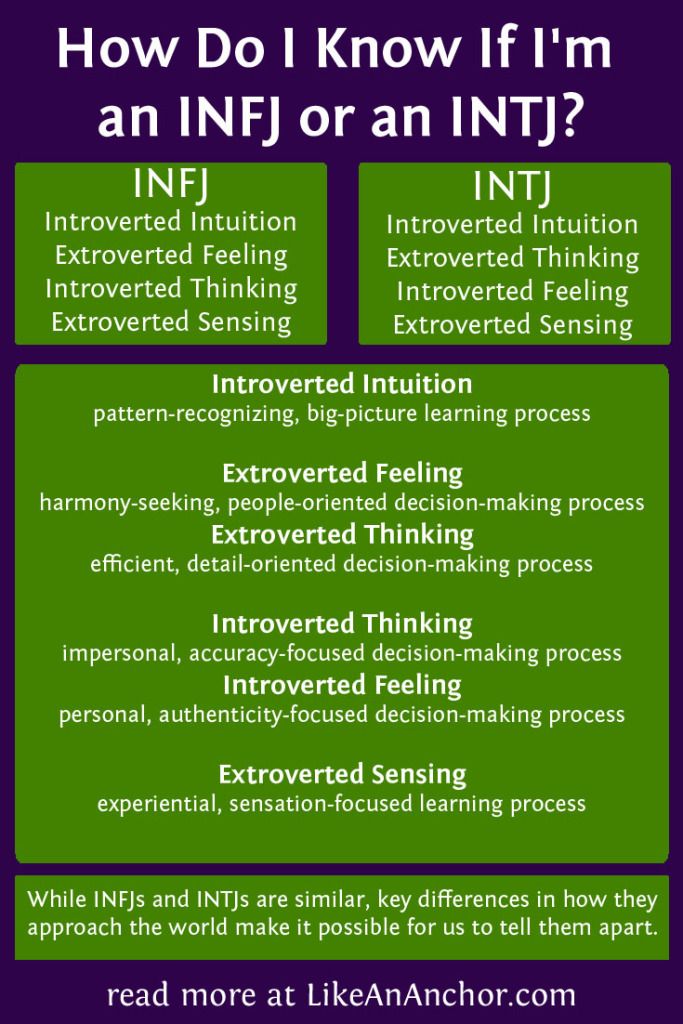 They are natural leaders, but they are willing to follow if they trust existing leaders.
They are natural leaders, but they are willing to follow if they trust existing leaders.
Introverted / Sensing / Thinking / Perceiving – (8.5% of males, 2.4% of females)
ISTP’s are quiet and reserved, interested in the way that things work. They are highly skilled with mechanical work and may be interested in/talented in extreme sports. They are flexible and tolerant, and tend to quietly observe until a solution becomes clear. They are interested in cause and effect and tend to organize facts using principles. They can be perceived as somewhat detached or analytical, and they excel at finding solutions to practical problems.
ISFPIntroverted / Sensing / Feeling / Perceiving – (7.6% of males, 9.9% of females)
ISFP’s are quiet, serious, sensitive, and kind. They dislike conflict and are unlikely to engage in activities where conflict is likely to occur. They are loyal and faithful, with a particular appreciation for the aesthetic.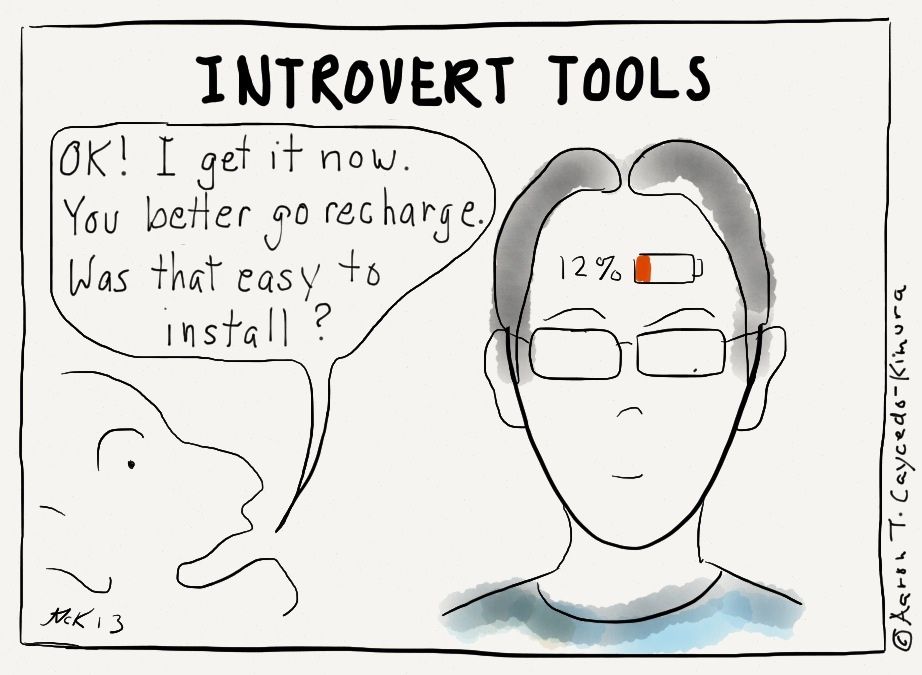 They tend to be flexible and open-minded, and are likely to be creative and original. They prefer to have their own space and work within their own time frame. They appreciate the present moment and enjoy what is going on around them in that moment.
They tend to be flexible and open-minded, and are likely to be creative and original. They prefer to have their own space and work within their own time frame. They appreciate the present moment and enjoy what is going on around them in that moment.
Introverted / Intuitive / Feeling / Perceiving – (4.1% of males, 4.6% of females)
INFP’s are reflective, quiet, and idealistic. They are loyal to their values and to the people who are important to them. They tend to have a well-developed value system, which they strive to live in accordance with. INFP’s are loyal, adaptable, and laid-back (until one of their values are threatened). They have an interest in understanding and helping others.
INTPIntroverted / Intuitive / Thinking / Perceiving – (4.8% of males, 1.8% of females)
INTP’s are original, logical, and creative thinkers. They tend to get very excited about ideas and theories. INTP’s usually value logic, knowledge, and competence.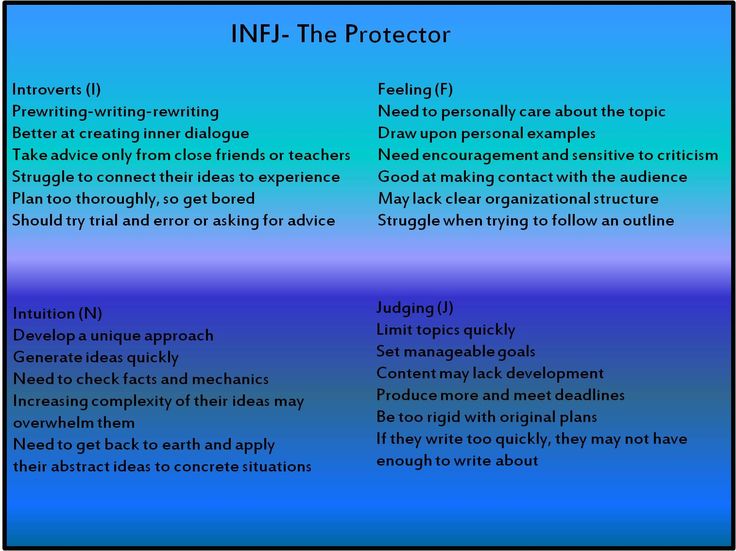 They are quiet and reserved, and may be difficult to get to know well. They are usually individualistic and are uninterested in either leading or following others.
They are quiet and reserved, and may be difficult to get to know well. They are usually individualistic and are uninterested in either leading or following others.
If you felt that you identified as an introvert in my recent post, Understanding the Myers-Briggs Type Indicator, which specific introverted type stood out to you the most? For some, a brief description of their Myers-Briggs type is a bit of an “a-ha!” moment.
For others, they may identify with features of multiple types. It is important to remember that no one type is “better” or “worse” than any other. Each type has specific strengths and weaknesses; they are simply different.
– – – – – – – – – – – – – – – – – – – – – – – – – – – – – – – – – – – – – – – – – – – – – – – – – – – – – – – – – – – – – – – – –
If you are interested in taking the official MBTI personality assessment, you may take it at MBTI Online for $49.95. For an unofficial version of the Jung Typology Test, you may take it for free at HumanMetrics.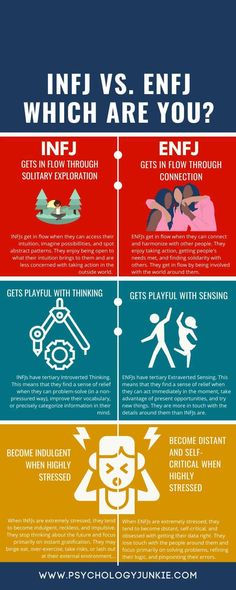
MBTI Statistics
The Myers & Briggs Foundation. (n.d.). Retrieved from http://www.myersbriggs.org/
Featured image: Solitude by patdebaz / CC BY 2.0
Signs of an Introvert Personality: Types, Traits & Characteristics
Written by Rachel Reiff Ellis
In this Article
- What Is an Introvert?
- Signs You Might Be an Introvert
- Causes of Introversion
- Types of Introverts
- Introversion Versus Shyness
- Myths About Introverts
What Is an Introvert?
An introvert is a person with qualities of a personality type known as introversion, which means that they feel more comfortable focusing on their inner thoughts and ideas, rather than what’s happening externally. They enjoy spending time with just one or two people, rather than large groups or crowds.
When you hear the word introvert, you might think of someone who's shy or quiet and prefers to be alone. While that may be true for some introverts, there's much more to this personality type.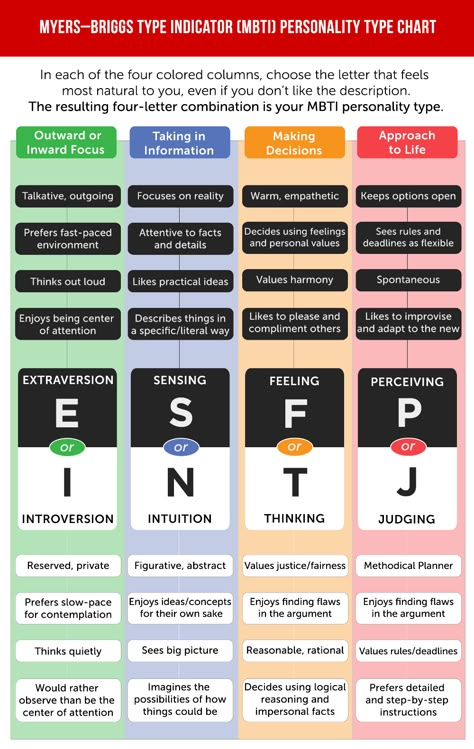 Whether you're an introvert or an extrovert all depends on how you process the world around you.
Whether you're an introvert or an extrovert all depends on how you process the world around you.
A psychologist named Carl Jung began using the terms introvert and extrovert (sometimes spelled extravert) in the 1920s. These two personality types sort people into how they get or spend their energy. Introverts, Jung said, turn to their own minds to recharge, while extroverts seek out other people for their energy needs.
Signs You Might Be an Introvert
Around one-third to one-half of all people in the U.S. are introverts. Though it looks different in everyone, introverts have many of the same patterns of behavior. In general, introverts:
- Need quiet to concentrate
- Are reflective
- Are self-aware
- Take time making decisions
- Feel comfortable being alone
- Don't like group work
- Prefer to write rather than talk
- Feel tired after being in a crowd
- Have few friendships, but are very close with these friends
- Daydream or use their imaginations to work out a problem
- Retreat into their own mind to rest
One way to find out if you're an introvert is to take a test, such as the Myers-Briggs Type Indicator (MBTI) or the SAPA project.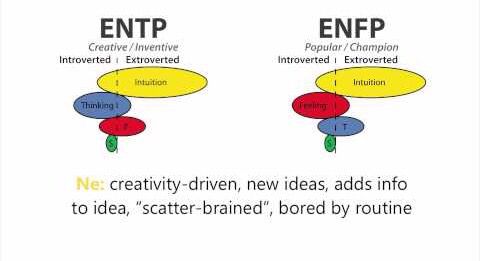
Causes of Introversion
Scientists don't know for sure if there's a cause for introversion or extroversion. What they do know is the brains of the two personality types work a little differently from each other. Researchers have found that introverts have a higher blood flow to their frontal lobe than extroverts do. This part of the brain helps you remember things, solve problems, and plan ahead.
Introvert brains also react differently to dopamine than extrovert brains do. That's a chemical that turns on the reward- and pleasure-seeking part of your brain. Introverts and extroverts have the same amount of the chemical, but extrovert brains get an excited buzz from their reward center. Introverts, on the other hand, tend to just feel run-down by it.
Types of Introverts
Being an introvert isn't an all-or-nothing stamp on your personality. Psychologists think of introverts as falling somewhere on a scale. Some people are more introverted than others. Other people fall right in the middle of the scale.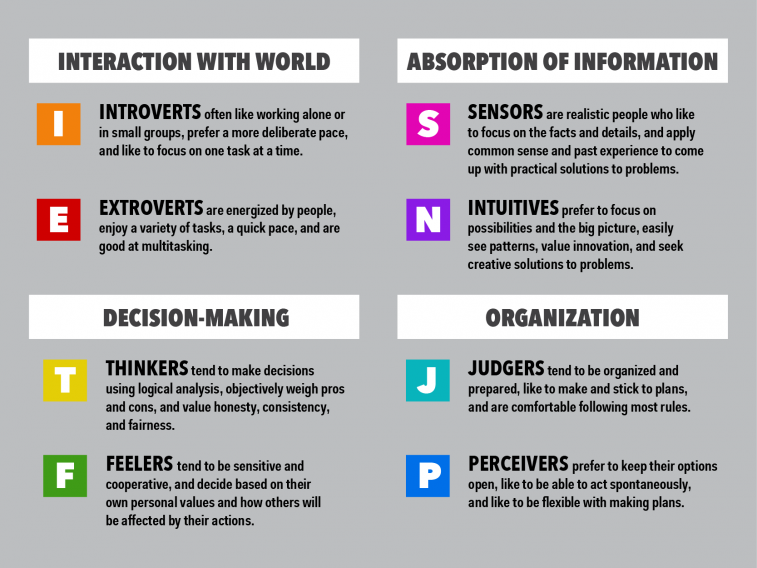 They're called ambiverts.
They're called ambiverts.
Introverts usually have a few extroverted traits mixed in with their introverted ones, and vice versa. There are a wide range of ways to be an introvert.
One study shows that introverts tend to fall into one of four subtypes:
Social introverts. This is the "classic" type of introvert. Social introverts like small groups and quiet settings over crowds.
Thinking introverts. People in this group are daydreamers. They spend a lot of time in their thoughts and tend to have creative imaginations.
Anxious introverts. They seek out alone time not just because they like it, but also because they often feel awkward or shy around people.
Restrained/inhibited introverts. These introverts think before they act. They aren't likely to make a decision on a whim. Typically they take longer to take action.
Your introverted ways may change over time, and in different settings, too. You're not likely to swing from introvert to extrovert. But it's possible you could become more or less introverted, depending on what's going on in your life.
You're not likely to swing from introvert to extrovert. But it's possible you could become more or less introverted, depending on what's going on in your life.
Introversion Versus Shyness
Many people think of introverts as shy, but the two aren’t linked. Introversion is a personality type, while shyness is an emotion.
People who are shy tend to feel awkward or uncomfortable when they’re in social situations, especially when they’re around strangers. They may feel so nervous, they become sweaty. Their heart may beat quicker, and they may get a stomachache. They may be inclined to skip social events because they don’t like the negative feelings that take over their thoughts and bodies when they have to go to parties or other activities.
People who are introverted also prefer to skip social events, but it’s because they feel more energized or comfortable doing things on their own or with one or two other people. Introverts don’t choose to skip social events because they have strong negative reactions to larger gatherings the way that shy people do; they just prefer being alone or in very small groups.
Myths About Introverts
One common myth about introverts is that they’re shy. Some introverts may be shy, but this is not the case for all introverts. Other myths include:
- Introverts are unfriendly. Being an introvert doesn’t affect how friendly you may be. Some people may think that introverts are unfriendly because they don’t tend to have large groups of friends, and they may reflect on situations quietly rather than joining in on conversations at gatherings.
- Introverts can’t be leaders. Although people may think of an extroverted personality when they imagine a leader, introverts have the skills to be bosses and leaders, too. Some of their qualities make them effective leaders: They listen to their employees’ ideas, they can stay focused on long-term goals, and they may seem less threatening, so people may accept them in their roles.
- It’s hard to get to know introverts. Introverts prefer to have deep friendships with only a handful of people.
 They may not open up to everyone who wants to small-talk, but the people they’re close with know them very well and develop real friendships with them.
They may not open up to everyone who wants to small-talk, but the people they’re close with know them very well and develop real friendships with them.
Extroverts, introverts, ambiverts: who they are and how to work with them
The company's team consists of a large number of people with different characters. In order for an HR specialist to effectively interact with employees, understand their motivation, know which work is comfortable for them and which is not, you need to be able to determine the personality type of specialists. There are three types of personality types: extroverts, introverts and ambiverts.
In our new article, you will learn what these types of people are and how to interact with them for productive work.
Extrovert: Distinctive Characteristics and Secrets of Interaction
Extroverts are the “lighters” of the company that are open to the world and directed towards people. They are very sociable and easily get along with people.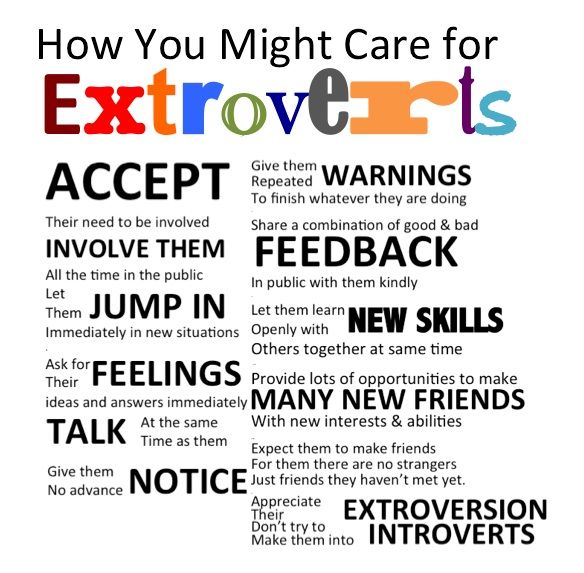 As a rule, extroverts quickly get used to the new team and can carry on any conversations.
As a rule, extroverts quickly get used to the new team and can carry on any conversations.
Extroverts are filled with energy if there are a lot of people around them. The book Cognitive, Affective, and Behavioral Neuroscience states that there are two types of extroverts:
- Active. Their key characteristics are assertiveness, success leadership, perseverance. Active extroverts like to be the center of attention and very often occupy leadership positions.
- Affiliates. Friendly, open and sincere guys. They easily find contact with new people and value their loved ones very much, because relationships mean a lot to them.
The main characteristics of extroverts:
- love to be the center of attention;
- do not like routine and monotony, they prefer variety;
- know a lot of people and make contact with strangers easily;
- they are driven by interesting work tasks, they are happy to take on a variety of complex tasks, but only if they are interested;
- first they speak, then they think;
- prefer to talk and talk about themselves than to listen to the interlocutor and try to understand his problem.

How to work with extroverts and set them tasks: 4 tips from the Hurma team
1. When setting tasks, it is very important to give them time and the opportunity to reason and ask interesting questions. Ask the extrovert for feedback on the task, let him tell you how he understood it, say deadlines and expected results.
2. Extrovert employees should be assigned to projects where they can learn something new for themselves. In addition, it is important to create a “competitive” environment for them, since it is these conditions that motivate them the most.
3. Give them the opportunity to be in the spotlight, be a mentor to someone, lead a discussion in which they can take the initiative and take action.
4. As a rule, extroverts have adequate self-esteem and are self-confident. But despite this, it is important to praise them and celebrate their achievements.
Introvert: distinctive characteristics and secrets of interaction
An introvert is the exact opposite of an extrovert. Such people focus more on their inner world than on the outside. Introverts are not very sociable, but at the same time, very pleasant interlocutors, if you talk with them on topics that interest them. In addition, if you find an approach to them and make friends, you can learn a lot of interesting things, since these are people with a rich inner world.
Such people focus more on their inner world than on the outside. Introverts are not very sociable, but at the same time, very pleasant interlocutors, if you talk with them on topics that interest them. In addition, if you find an approach to them and make friends, you can learn a lot of interesting things, since these are people with a rich inner world.
They place the main emphasis on their own knowledge and experience, and not on the views of other people. An introvert likes to read, plan things, work more productively in a calm environment. You can recognize an introvert by the expressions: "I need to think", "I need to analyze", etc.
How to work with introverts and set them tasks: tips from the Hurma team
1.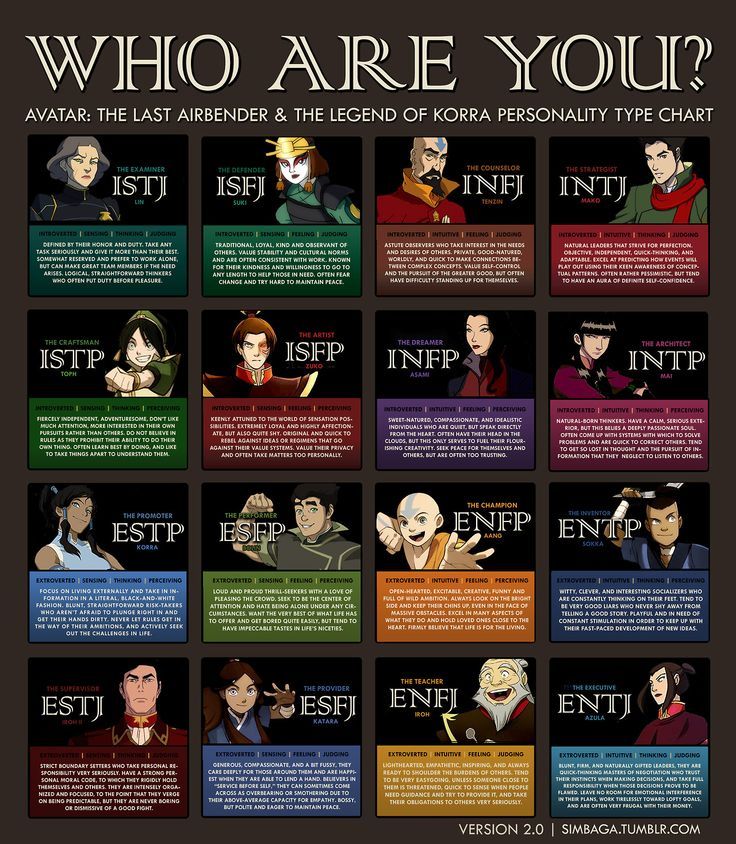 Introverts think a lot and that is why they cannot always answer the question quickly. Give them time to think things over, formulate an answer, study more information. If introverts do not know something, they study the issue, delving into the details.
Introverts think a lot and that is why they cannot always answer the question quickly. Give them time to think things over, formulate an answer, study more information. If introverts do not know something, they study the issue, delving into the details.
2. Be prepared to answer a large number of questions, because it is important for introverts to understand the manager's analytics, why the task needs to be done in this way, on what grounds this or that decision was made.
3. Introverts have one feature similar to extroverts - they also need praise and recognition of their merits. And in principle, praise is important to everyone, do not spare praise, well, really 🙂
4. When working with an introvert and setting a task, accurately calculate the time frame, explain step by step how and what needs to be done.
5. These are not the kind of people who need to be constantly monitored. If you want to work with an introvert, give him more freedom of action.
6.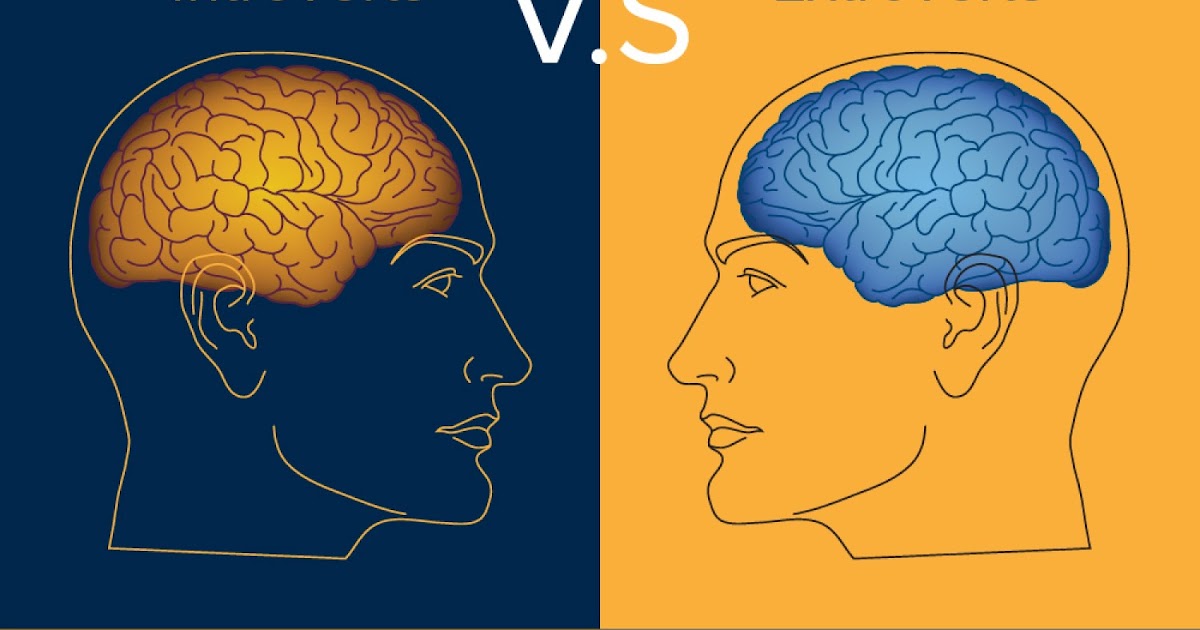 If you do not have time to communicate with them personally, use e-mail or corporate messengers.
If you do not have time to communicate with them personally, use e-mail or corporate messengers.
Ambivert: distinctive characteristics and secrets of interaction
Ambivert is the golden mean between a calm introvert and a hyperactive extrovert. Depending on the specific situation, they can behave both as introverts and as extroverts. If they are uncomfortable, they immerse themselves in themselves; if they like the surrounding conditions, ambiverts actively communicate with everyone.
These people value both social interaction and solitude, when they can be alone and think. Barry Smith, director of the Human Psychophysiology Laboratory at the University of Maryland, claims that 68% of people are ambiverts.
The main signs of ambiverts:
- quickly join a new team and do not experience discomfort when communicating with strangers;
- have empathy, understand and listen to the emotions of other people;
- they have a wider social circle than introverts;
- they connect with people more deeply than extroverts.
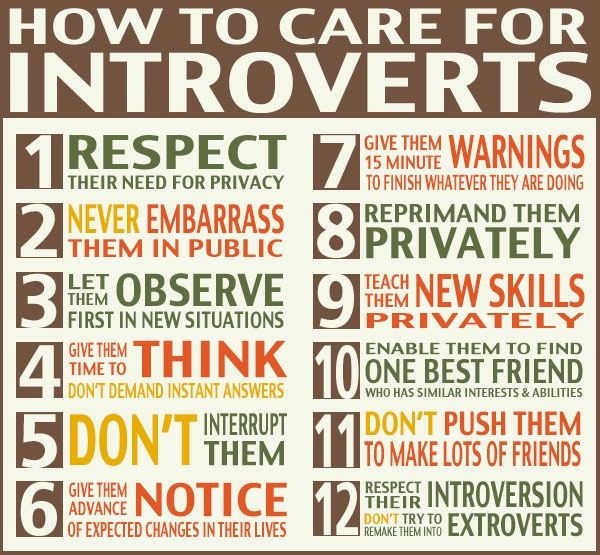
How to work with ambiverts and set them tasks: tips from the Hurma team
1. Ambiverts can work with both routine and interesting tasks. Therefore, if there is monotonous work in the list of tasks, they will do it.
2. If you have difficult tasks, you can entrust their implementation to ambiverts. They are easy-going and not afraid to take risks.
3. Ambiverts are not afraid of public speaking at events, make many contacts and quickly win over. So they are the first who want to participate in various activities.
4. While working with them, remember that they, like introverts, think a lot, try to analyze all moments and aspects in order to make an informed decision.
Flexibility is key
It is important for HR managers and leaders to consider the personality types of employees in order to entrust them with projects in which they will perform at their best, and not vice versa. For example, if you want an extrovert to do a great job, don't give them a task that requires a lot of attention to detail.
Encourage introverts to be active when they are active, make sure that there are not too many extroverts and they do not annoy their colleagues.
But, most importantly, remember that there are very few people who are of the extraverted or introverted type. So put in the forefront not what type you or your colleagues are, but flexibility and mutual respect.
Extroverts, introverts, ambiverts - we increase productivity by psychotype. Office service.
Extroverts, introverts, ambiverts - we increase productivity by psychotype. Office service.Everyone has heard about personality types and passed a lot of tests to determine their own psychological portrait. There are three types of personality - extroverts, introverts and ambiverts. Each psychotype has different character traits, behaviors and a different work style.
Let's figure out how to be productive if you're an extrovert, introvert, or ambivert.
Personality typology - a short digression
There are various classifications of personality types.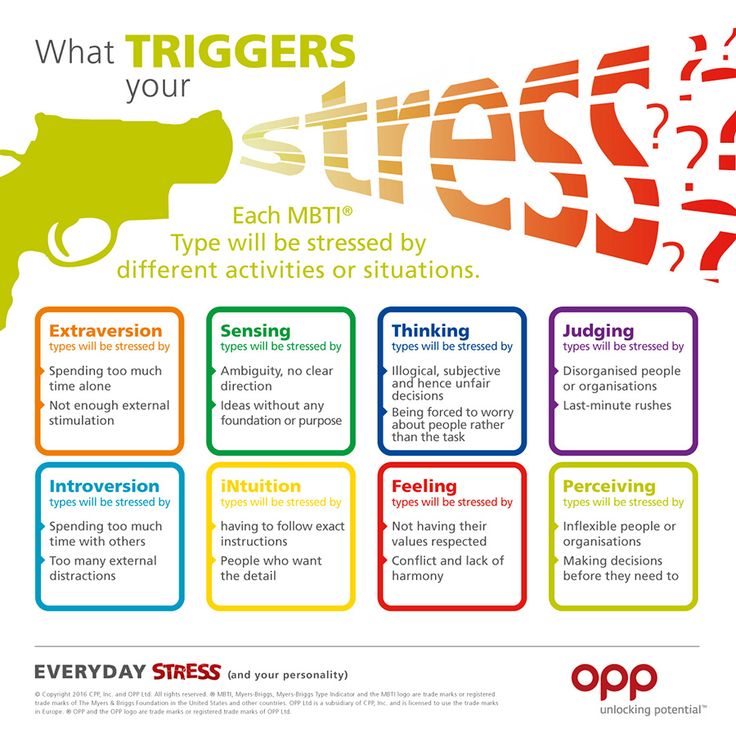 The most popular is the personality typology of Carl Gustav Jung. In the first half of the twentieth century, Jung proposed a classification of personality based on the direction of a person's internal (psychic) energy. The scientist identified two main directions of energy - extraversion and introversion. The bottom line is that in a person with extraversion traits, energy is directed to the outside world, in people with introversion - to the inner world. At the same time, Jung emphasized that both types of energy are present in a person, one of which is dominant. Based on this, Carl Jung identified two types of people - extroverts and introverts.
The most popular is the personality typology of Carl Gustav Jung. In the first half of the twentieth century, Jung proposed a classification of personality based on the direction of a person's internal (psychic) energy. The scientist identified two main directions of energy - extraversion and introversion. The bottom line is that in a person with extraversion traits, energy is directed to the outside world, in people with introversion - to the inner world. At the same time, Jung emphasized that both types of energy are present in a person, one of which is dominant. Based on this, Carl Jung identified two types of people - extroverts and introverts.
Later, the American psychologist Edmund Conklin introduced the concept of "ambivert", denoting the third type of personality. According to the scientist, ambiverts include people whose traits of extraversion or introversion appear in different situations. So there were three basic psychotypes - extrovert, introvert and ambivert.
Each type has special character traits, copes with stress and recuperates differently, has a different style of work.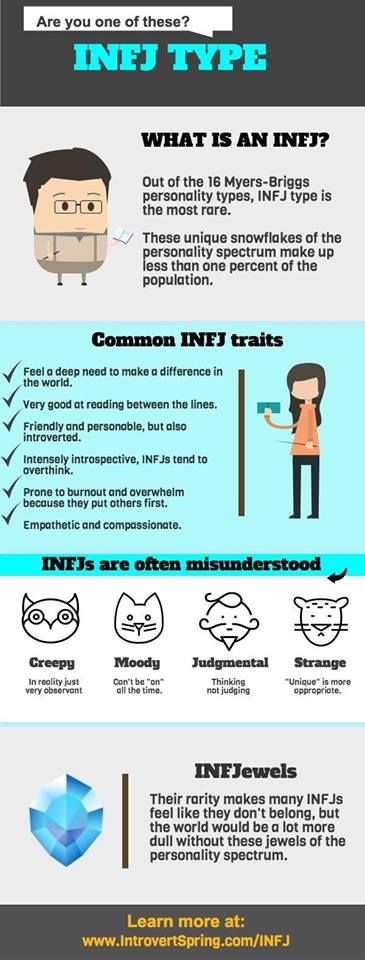 Let's take a closer look at the distinguishing features of extroverts, introverts and ambiverts.
Let's take a closer look at the distinguishing features of extroverts, introverts and ambiverts.
Extroverts
It is believed that extroverts are sociable people who easily make new acquaintances. They are more successful in society and have leadership qualities. For the most part, this is true. People with dominant extraversion traits are open to the outside world. Extroverts draw energy in society, in communication. But they cannot be alone for a long time. It exhausts them psychologically.
The most characteristic character traits of extroverts:
- Extroverts turn to the outside world, adapt to it.
- Sociable and friendly.
- Often characterized by assertiveness and leadership qualities.
- They like publicity, being the center of attention.
- Replenish energy by communicating with people.
- They do not like to be alone for a long time.
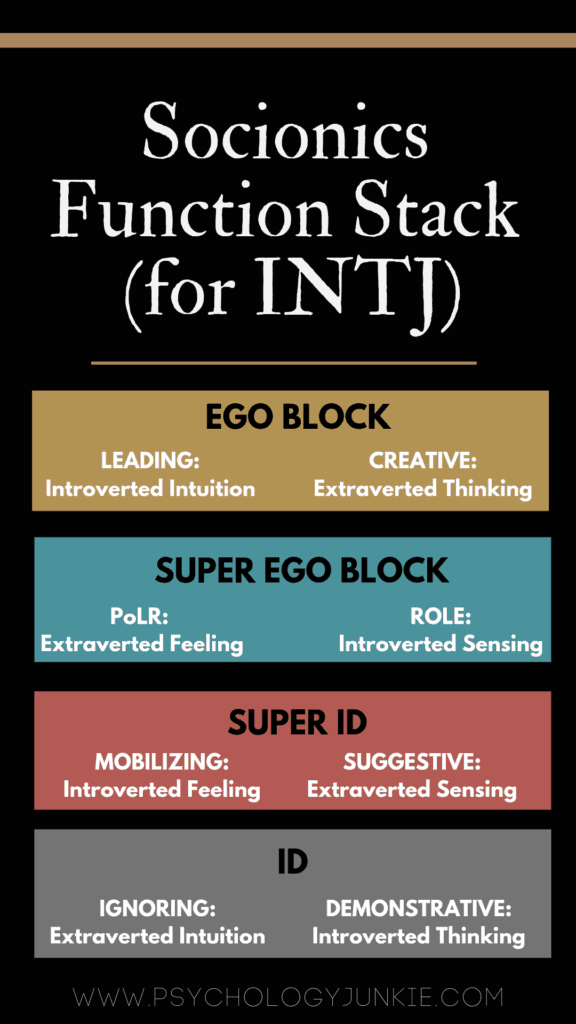
- They prefer to work in a team.
- Initiative, with a high level of enthusiasm.
- Able to sacrifice themselves for a common goal or for other people.
- Suggestible.
Introverts
It is believed that introverts are quiet, reserved people who find it difficult to make new acquaintances. Even in society, it is widely believed that introverts are shy people. This is not entirely true. Both extroverts and ambiverts can be shy. Shyness is not a feature of introverts, it is the fear of public condemnation, misunderstanding. This is a separate issue that can and should be addressed. And if shyness interferes with a normal social life, then you should seek help from a specialist.
Introverts are quite sociable, it's just more difficult for them to open up in a society of strangers than for extroverts.
The distinguishing features of introverts are:
- Introverts have a small circle of friends, but are very devoted to them.
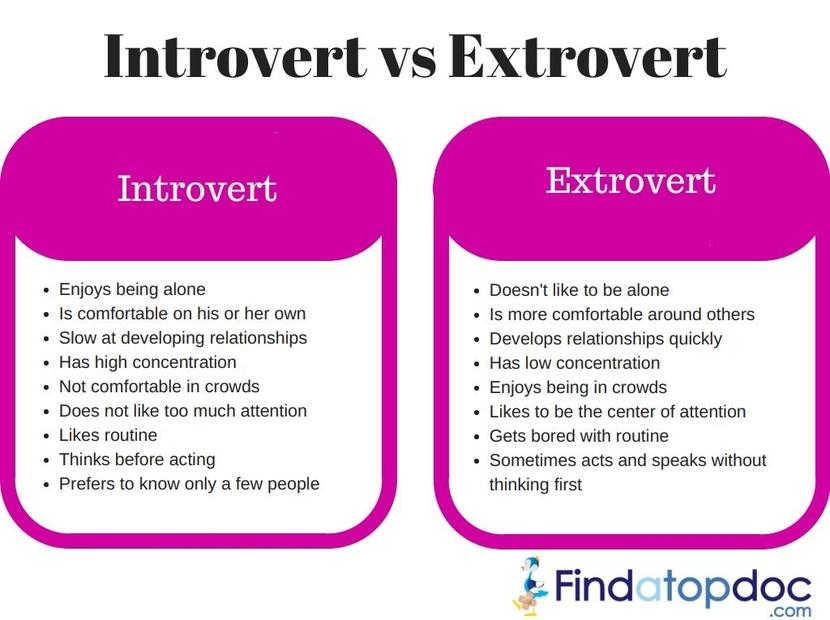
- They like to spend time alone, tend to self-reflection.
- They prefer independent work.
- Avoid large gatherings of people (for example, rallies, meetings, etc.).
- Some introverts are slow, carefully check every action, like to plan ahead.
- Do not openly show emotions and feelings.
- They prefer to rest and recuperate alone.
- Highly appreciates personal qualities such as honesty, sincerity, fidelity.
- Restrained and calm in communication.
Ambiverts
The third personality type that psychologist Edmund Colkin called the flexible, adaptive personality type is the ambivert. It is believed that most people on the planet are ambiverts.
Ambiverts - this can be said to be a universal personality type that combines the features of extroverts and introverts. People with ambiversion traits can act as extroverts or introverts depending on the situation.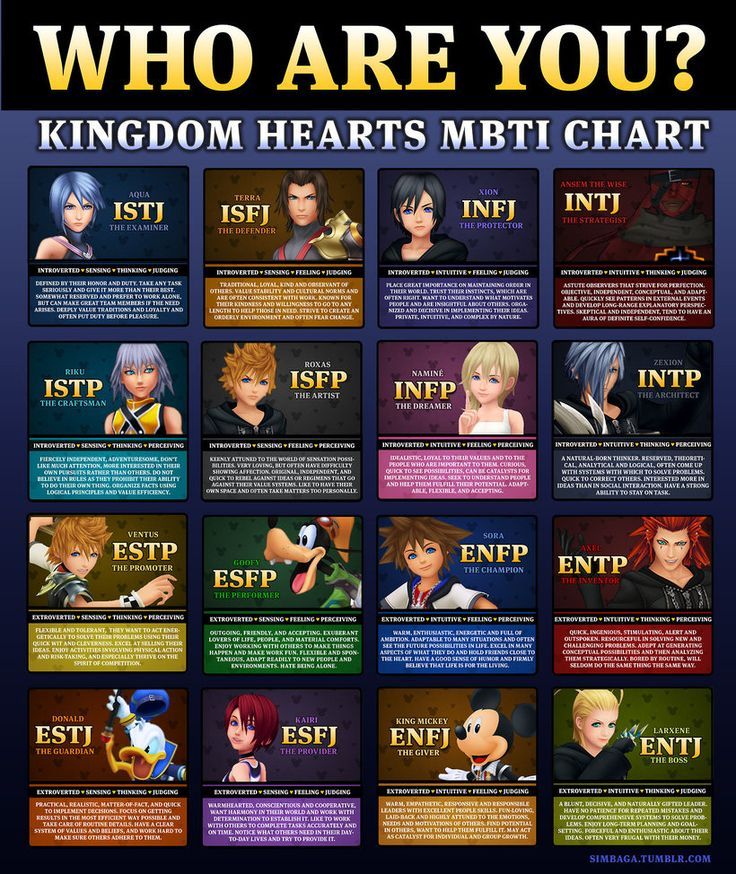 So, for example, a person can be an enterprising leader at work and a calm, reserved person in the family, or vice versa.
So, for example, a person can be an enterprising leader at work and a calm, reserved person in the family, or vice versa.
Distinctive features of ambiverts:
- They love society and at the same time it is important for them to be alone.
- Works well in a team and can work effectively on their own.
- More flexible, able to adapt to changing environments.
- Feel comfortable in public, in large companies.
- For ambiverts, it is important to maintain a balance between society and loneliness.
If you are not sure what type of personality you have, try the Eysenck test. This is a classic method for determining the psychotype on an extraverted-introverted scale. If you still have doubts, take the test from the American psychologist Adam Grant. The test will give a clear idea of which of the three personality types you belong to.
Read also:
Increasing productivity
Knowing what type of person you are will help you adjust your workflow and reduce stress factors.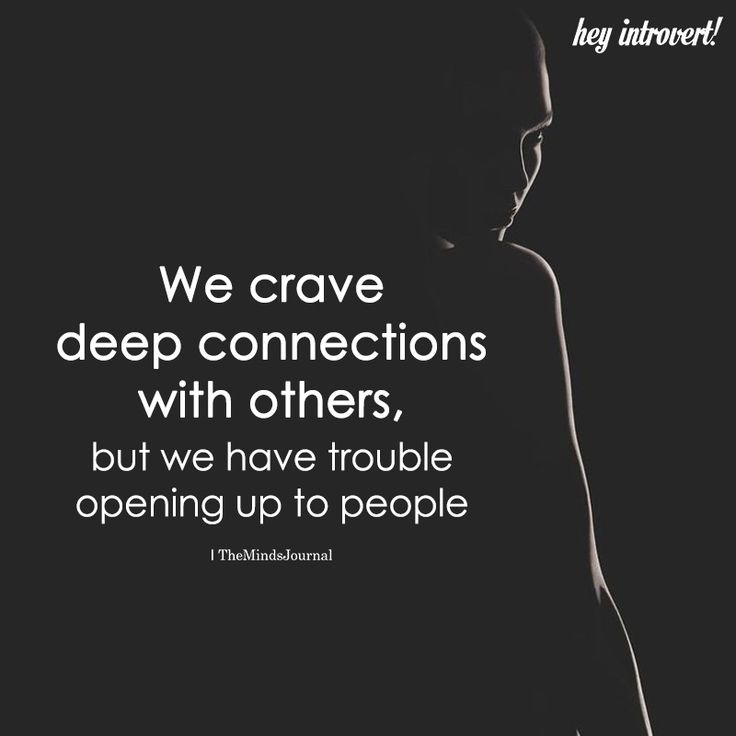 Efficiency in work is important for all areas and specialties. To achieve maximum productivity, understand yourself and adjust your workflow so that your life energy is directed in the right direction. Here are some tips for extroverts, introverts, ambiverts.
Efficiency in work is important for all areas and specialties. To achieve maximum productivity, understand yourself and adjust your workflow so that your life energy is directed in the right direction. Here are some tips for extroverts, introverts, ambiverts.
Tips for extroverts
- Be active. Extroverts cannot sit in silence for a long time or sit for hours at monotonous work. Think of activities. For example, if the office is deafeningly quiet, try adding some music. You have to make a boring report, come up with a game for yourself - write a page and treat yourself to coffee or chocolate. You can think of anything. The main thing is that the extrovert does not feel bored.
- Use your abilities. Do not be afraid and offer your candidature for speaking at conferences, seminars or take the initiative and organize a corporate party. The main thing to remember is not to take on too much. Extroverts cannot always realistically assess their strengths, and due to excessive workload, there is a possibility of “burnout”.
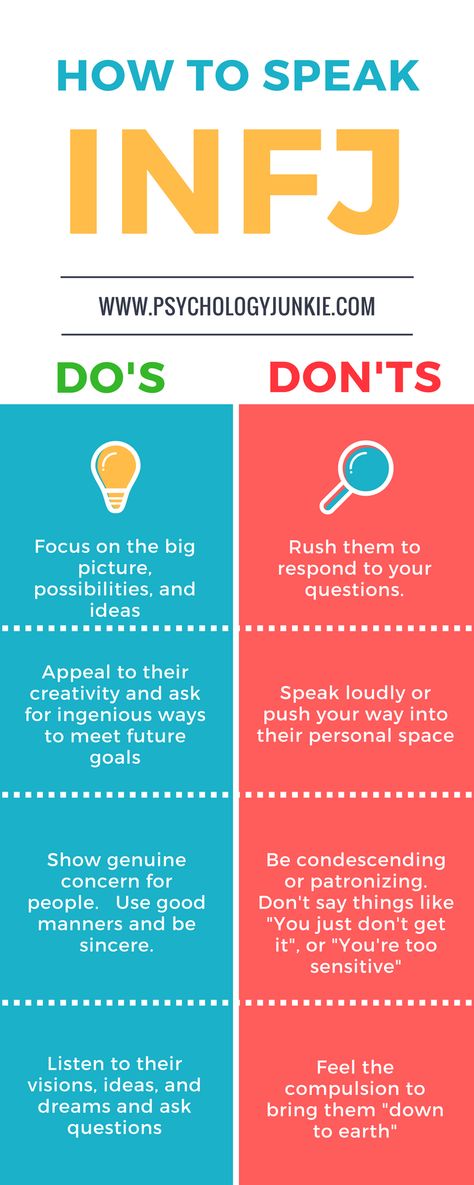
- Have a chat hour. Communication is an energy boost for extroverts. You can set aside an hour to chat with colleagues or friends. A good conversation can give extroverts strength and energy for the rest of the day.
- Allow 20-30 minutes for analysis. It is important to analyze your actions, your effectiveness. After reflection, you will probably have more thoughts on how and what can be improved.
Tips for introverts:
- Improve your work environment. It is important that the workplace of introverts be as secluded as possible. For example, the open space format is not a very good option for introverts. Open space, a lot of unnecessary conversations with colleagues can be tiring. Try looking for a more private place to work. You can ask management to make special rooms or divide office space with partitions.
- Choose custom work. If you have a choice, give preference to individual work.
 You will be able to independently plan your time and effort, the process of work.
You will be able to independently plan your time and effort, the process of work.
- Prepare well in advance for public meetings. Meetings, business meetings are a lot of stress for introverts. Try to prepare in advance for such events. Prepare a list of questions or your speech. Study the topic of the meeting and write down your thoughts on this issue. Try to be the first to speak at a meeting or negotiation.
- Take your time. Introverts tend to check and think things through before making a decision. Tell management about your pace of work and try to take on those tasks that require detailed study.
Tips for ambiverts:
- Stay flexible. The combination of traits of extroverts and introverts makes it easy to adapt to any conditions. Ambiverts, for the most part, get energy from those around them. Therefore, be mindful of your surroundings. Avoid nervous, negative people. Use your flexibility and enjoy rich social interactions or working alone.
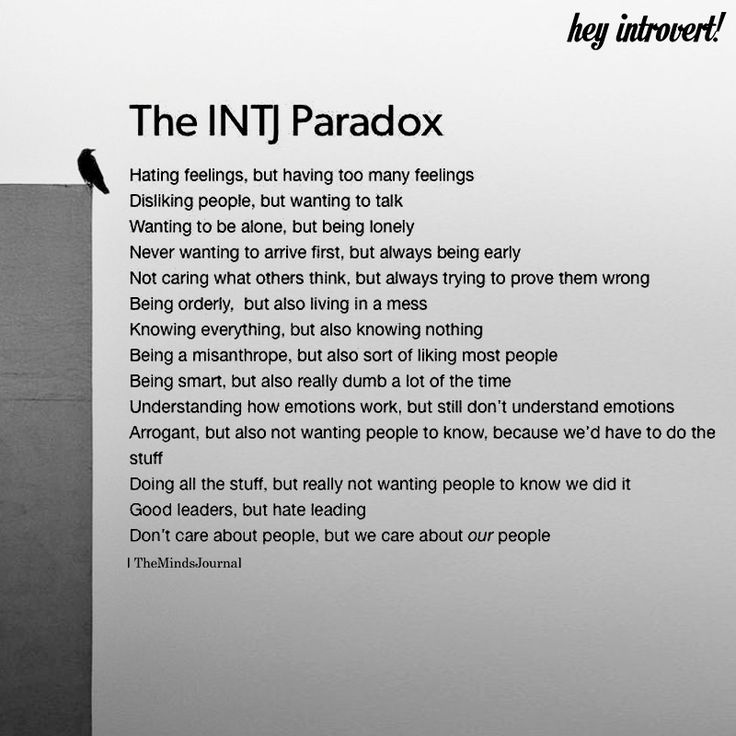
- Try new approaches. Experiment and look for new ways to increase your own productivity. Depending on the situation in which you manifest traits of extraversion or introversion, use different methods. For example, you feel great discussing a project in a large company, but at the same time you do not like to speak at meetings. Use the tips above for extroverts and introverts.
Conclusion or advice for all personality types
Don't force yourself into your own personality type. Remember that in order to develop you need to leave your comfort zone. If you are an introvert, try to speak in public, talk more with colleagues. This can help you move up the career ladder. It is sometimes useful for extroverts to step aside a little, to observe themselves and colleagues.
The main advice for everyone, whether you are an extrovert, introvert or ambivert, is to learn to compromise and learn to understand yourself.